Weblabs in Chemical Engineering Workshop
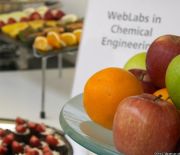
As part of the Cambridge-MIT Institute-sponsored "Weblabs in Chemical Engineering" project we hosted a workshop on 8 July 2005 in the Møller Centre. Participants and speakers came from 10 countries in Europe and America to share experiences and discuss the possibilities of internet accessible laboratory experiments in chemical engineering education.
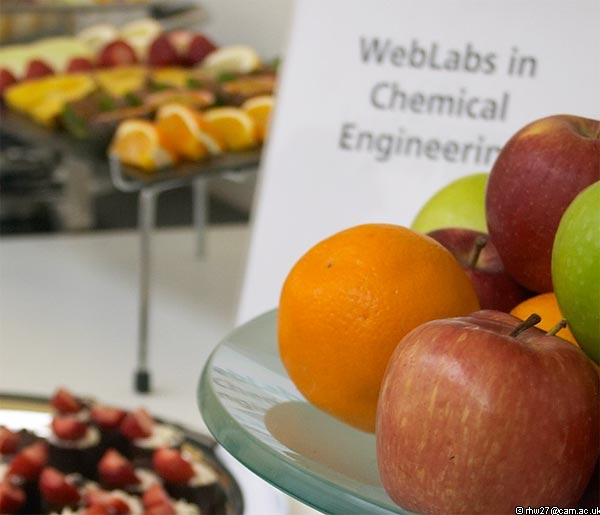
Talk titles are links to presentations:
The Impact of Web-based Experiments in Teaching at Tec de MonterreyMiguel Romero-Ogawa, Tecnológico de Monterrey
Tec de Monterrey in Mexico is a privately funded, 33 campus university with almost 100,000 students. Miguel Romero talked about their use of weblabs in the areas of remote process control, collaborative distance engineering and distance learning. Faculty staff supervising the students performing the experiments can also access the experiments and provide advice. Tec de Monterrey are now collaborating with MIT iLabs, Honeywell and Siemens to develop more experiments in different areas of engineering education.
Six Years with the Vernetztes Studium ProjectRalf Moros, University of Leipzig
Ralf Moros has been involved from the start with the “Vernetztes Studium” project. Vernetztes Studium is a collaboration between 13 German universities and a private company and consists of a network of 1327 web-based “knowledge modules” or “learning units”, each taking 45-60 minutes for the students to complete. Ralf also demonstrated the learning unit for residence time distributions and performed two experiments on-line.
The iLabs Shared Architecture and the Future of Web-based Laboratory ExperimentsPhil Bailey, MIT
Phil Bailey talked about the MIT iLabs and the shared architecture they are developing to simplify the sharing of web-based experiments. The iLabs have been very positively recieved by the MIT students and offer advantages to the institution and teaching faculty as well. The shared architecture is designed to put the handling of different tasks where they are best suited. For example, if an institution broadcasts an experiment to a remote campus, adding of students to the system, putting them in groups, scheduling them, storing their data etc. can be handled by the remote campus using the experiment rather than the campus providing the experiment.
Weblabs cluster in Chemical and Biochemical Process EngineeringLuiz Valcov Loureiro, University of São Paulo
University of São Paulo in Brazil is a multi campus university using web accessible experiments to share equipment between the different sites. Luiz Valcov Luoreiro talked about their different experiments in the areas of Bio Processes Engineering, Catalytic Reactor Engineering and Chemical Processes Engineering. Teams of students from different campuses perform experiments together which has considerably improved the students' commitment.
A suite of Web-accessible Experiments for Teaching Heat Transfer: Pedagogical AspectsClark Colton, MIT
Clark Colton developed his first web-accessible experiment in 2001 and the success of the heat exchanger has made him develop a suite of experiments to help his lecturing in heat transfer. His students appreciate the handling of real data and the team experience and to Clark it offers possibilities to add experimental work to a lecture course without a lab component, to add experimental work to homework, to use it as demos in lectures or as interesting projects for the students. Clark also pointed out, by using several examples, that a full of understanding of the behaviour of the equipment is not always trivial.
Development of remotely controlled experiments at ArmfieldTed Sansom, Armfield Ltd
Ted Sansom, the technical director of Armfield Ltd., talked about their development of remotely operated laboratory experiments in collaboration with MIT and how experiences from this project now can be used in other Armfield products. We also learned about an ongoing software project to create a remote operation interface.
Performing Process Control Experiments Across the AtlanticAnders Selmer, University of Cambridge
University of Cambridge students have performed a new exercise in Process Dynamics and Control on the MIT iLabs heat exchanger. Anders Selmer explained the thoughts behind and the content of the new exercise and the result of the student evaluation. The equipment performed without failure during the course and the new exercise was very positively received by the students. Anders also talked about the collaboration with Siemens on a new experiment on residence times and reaction kinetics.
Photographs from the workshop taken by Richard West:
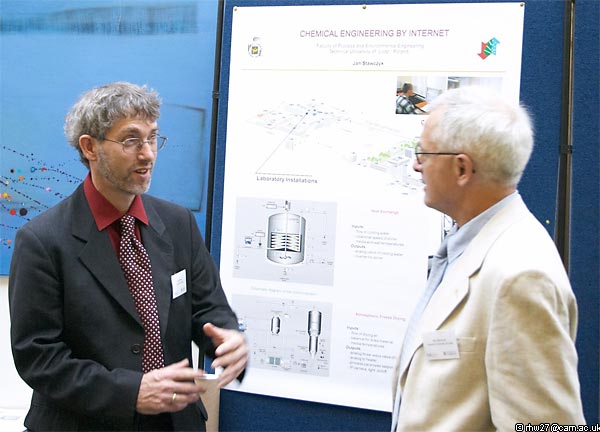
Ralf Moros talking to Jan Stawczyk at the poster session
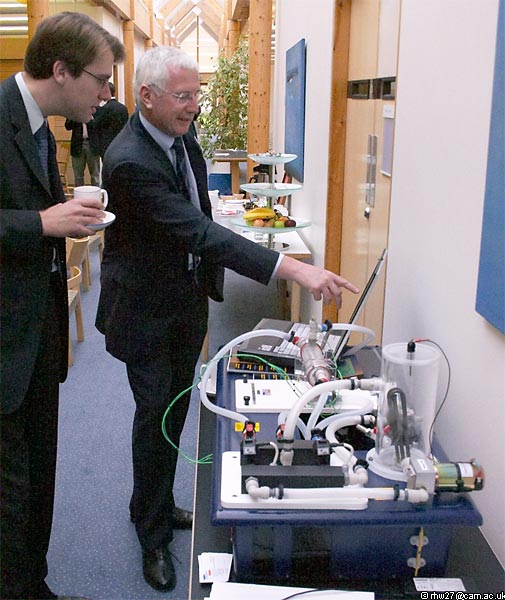
Ted Sansom explaining the Armfield remote control heat exchanger to Chris Handscomb
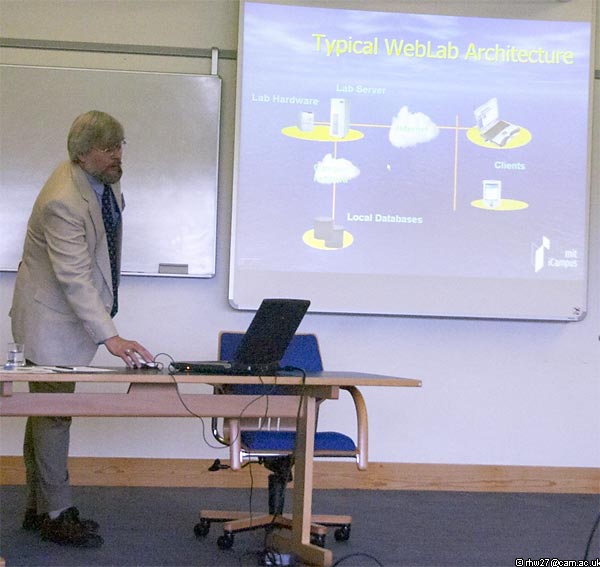
Phil Bailey talking about the MIT iLabs shared Architecture and the future of web based experiments
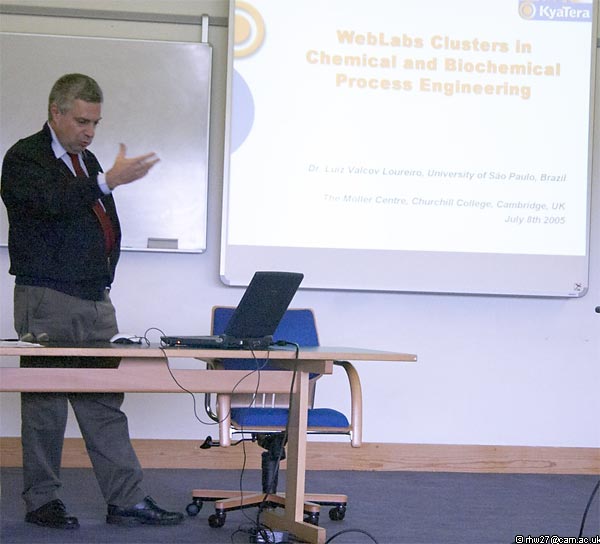
Luiz Valcov Loureiro talking about the use of weblabs at the University of São Paulo, Brazil
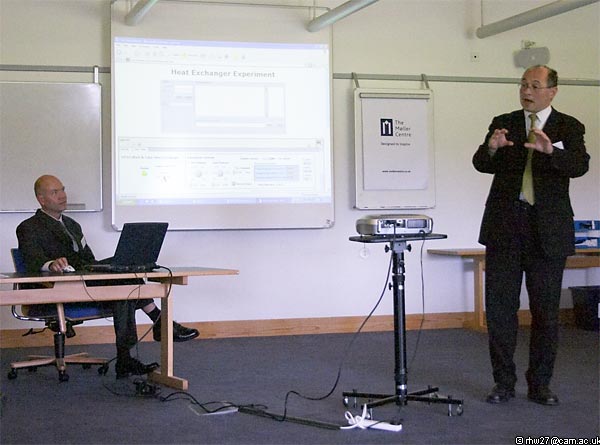
Anders Selmer and Markus Kraft demonstrate the control assignment University of Cambridge students perform on the MIT iLabs heat exchanger
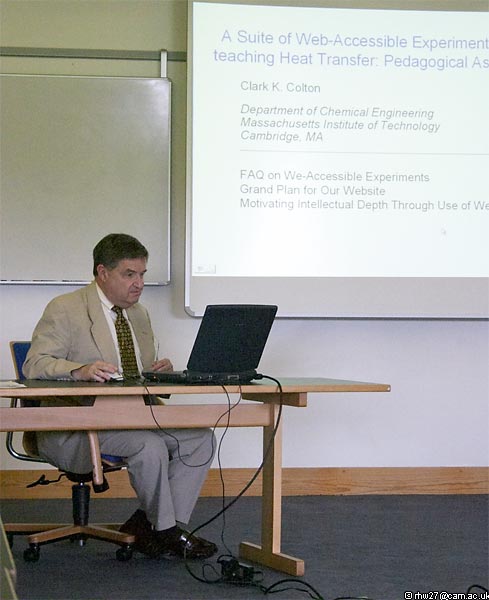
Clark Colton shares his experiences developing a suite of web accessible heat transfer experiments for use in his teaching at MIT



